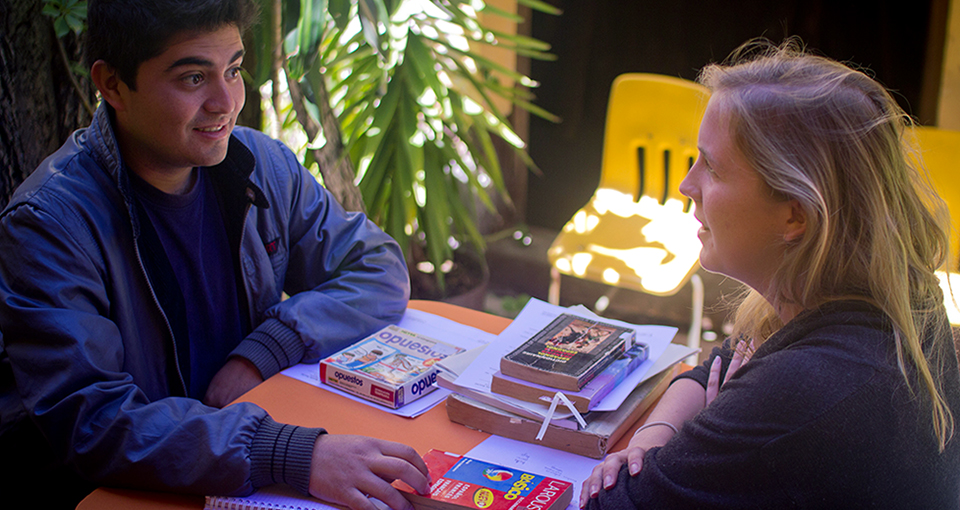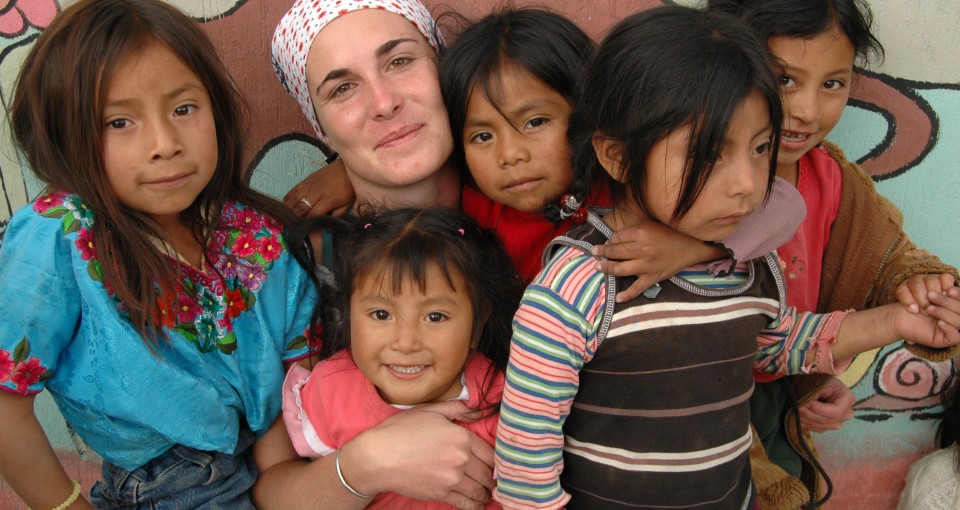Who We Are
Instituto de Estudios de Español y Participación en Ayuda Social
We are the only organization in Guatemala, seen as "Spanish school", that is officially recognized by the Guatemalan State as a self-sustaining non-profit organization. We were given this recognition for performing a range of social, legal and humanitarian work in order to help the development of communities around Quetzaltenango, Guatemala. We received official recognition from UNESCO in 1998 for our work in educational development in Mayan communities surrounding Quetzaltenango.
We Are Composed of Three Departments:
Spanish Language Department
We provide engaging Spanish classes that put an emphasis on the culture, history and day to day life of the people of the Western Highlands.
Social Aid Department
Profits derived from our Spanish Language Department are used in our Social Aid Programs, to help Mayan communities (help of schools, computer labs, nurseries as well as a host of other issues).
Mayan Science & Culture DepartmentNew
This space is dedicated to studying, promoting, and sharing the millennia-old wisdom of the Mayan people—not as a distant relic of the past, but as a living source of learning, healing, and transformation.
Our Structure
Director
Message from María Antonieta:
“INEPAS came into existence in response to the evident problems with the Guatemalan educational system. Faced with severe socio-economic limitations, it does not meet the basic educational needs of the student population. The high levels of illiteracy, poverty, and lack of opportunity for personal development have a fundamental effect on children and teenagers throughout rural regions of Guatemala. This situation severely limits the vision of an economic growth with equality, especially in today’s global environment, which is increasingly competitive and demands highly qualified human resources.
In order to attain economic resources to fund social projects that would improve this situation, INEPAS decided to create a Spanish Language Department, aimed at foreign students who want to learn the Spanish language.
For me, as a social worker, INEPAS represents an opportunity to support the children and families of different communities in the rural areas of Guatemala in their struggle to achieve a better quality of life.
At the same time I greatly appreciate the solidarity and participation of all the INEPAS volunteers and collaborators around the world whose time and experience have also contributed to the development and growth of our institution.”
María Antonieta Ixcoteyac Velásquez
PhD in social investigation
It is her vision, devotion and experience that make INEPAS such an effective institution today.
International Co-ordination Assistant
Fabien El Ouinkhir
Switzerland
Supports the General Co-ordinator with various tasks, and takes specific responsibility for the promotion of the Spanish Language School overseas.
Spanish Teachers
All our teachers are qualified Guatemalans with a recognized teaching certificate and are familiar with the needs of students who are new to learning a language. They are knowledgeable about national and international issues and either have, or are currently studying for, a University degree.
Volunteers
Volunteers can support us in many different ways, be it in the Spanish Language or Social Aid Departments (or in some cases both). Please see the Volunteering page for more information.
International Collaborators
Message from Belen Garcia Amor:
“I worked with INEPAS for nine months as the International Co-ordinator. It’s difficult to describe in a few words such an amazing experience. During my time there, I realized how much can be achieved with vision and effort. INEPAS carries out incredible social work in the indigenous communities around Quetzaltenango. The experience offered me the opportunity to get to know these communities, and to understand and live in their reality. It is because of these people that I continue to give my support to INEPAS as an International Collaborator.”
Board of Directors
Depending on their profession and availability, members of the Board of Directors also participate in the work of INEPAS. The Board includes social workers, engineers and a lawyer so that advice in their respective professions is always available.
Philosophy
Since its founding in 1994, INEPAS has considered it essential to work with the Mayan communities of Quetzaltenango, rather than simply for them. As a socially committed organization, we embrace the philosophy that our primary role is to motivate, accompany, and guide communities toward processes of self-management. Communities do not receive our support passively, nor do they depend on it; on the contrary, they use it as a tool to strengthen their own capacities and acquire the knowledge needed to make independent decisions that improve their quality of life.
At INEPAS, we do not promote paternalism; we firmly believe that true development arises from respect, active participation, and the recognition of the wisdom and potential that communities already possess.
In this way, INEPAS acts as a bridge for social and human support, rather than a source of short-term financial aid. Our goal is to help broaden the aspirations of individuals, families, and communities, with the vision that the guidance we provide will have a lasting and sustainable impact across time and generations.
This approach forms one of the core pillars of INEPAS’s institutional philosophy, guiding every one of our actions and community-based projects.
Mission
INEPAS’s mission is focused on promoting and strengthening community organization and participation, recognizing that the sustainability of projects depends on the commitment and active collaboration of the communities themselves.
In a global context of technical, educational, and social progress, our work seeks not only to ensure the continuity of initiatives, but also to guarantee that they evolve and adapt to changing needs and environments.
The involvement of communities in decision-making, planning, and project implementation not only strengthens local organizational structures, but also fosters transparency and contributes to the long-term success and sustainability of each initiative.
Vision
To be an institution that, through education, promotes development opportunities so that Guatemalans can build a dignified future in their own country—without feeling the need to migrate in search of better living conditions.
We aspire to strengthen academic and professional training in order to contribute to the stability and well-being of future generations.
Core Principles
-
A country’s development is directly proportional to the level of education of each of its citizens.
-
Social action does not mean providing assistance. Social action must, above all, promote the development of human capacities and eliminate paternalism.
-
We are all capable of learning and changing — education is the foundation of transformation.


